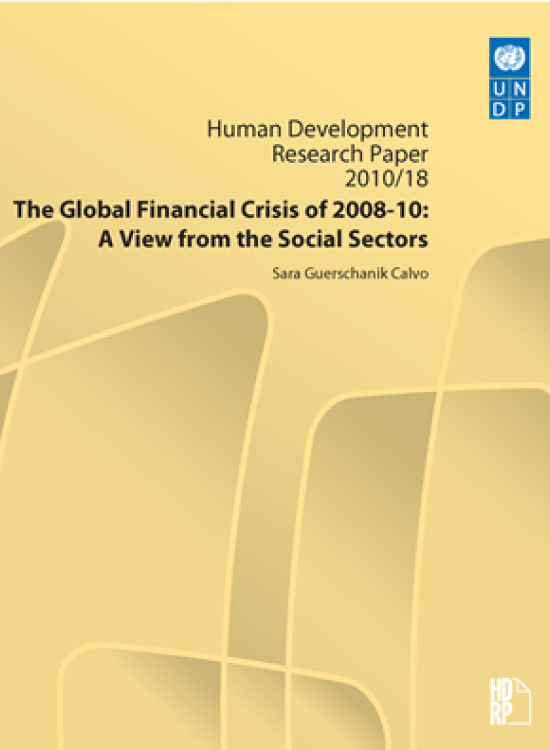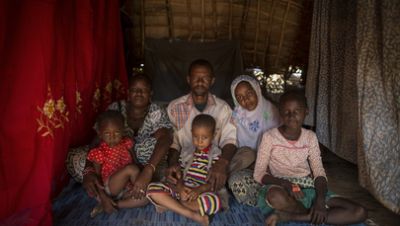The Global Financial Crisis of 2008-10
A View from the Social Sectors

Download Report by Language
Document
hdrp201018.pdf
(854.61 KB)
Citation
Calvo, Sara Guerschanik. 2010. The Global Financial Crisis of 2008-10: A View from the Social Sectors. New York.
The Global Financial Crisis of 2008-10
A View from the Social Sectors
Posted on: January 01, 2010
The impact of the US financial crisis that unfolded in 2008 has been global. It was felt in output, trade, and cross-border capital flows and transfers. Incomes have dropped and consumption patterns are changing, placing at risk the human development gains of the 1990s. At the heart of this global crisis is a credit crunch that has put financial strains on firms and individuals and has led to a large number of job losses and drops in income from other sources. Having learned the lessons from past financial crises, some countries were well prepared and, with support from the international financial community, lessened the impact of the crisis. Still, current estimates about the impact of the Crisis are staggering. But country experiences show that in the past there have been huge overestimates of the impact on human development indicators that may be the case again now. The high share of developing-country exports in total exports to advanced countries and the high number of women—pivotal in child development--in developing country-export sectors, make focusing on national and global actions conducive to restore world credit a priority for policymakers. High on the action list is restoring credibility in financial markets, making credit accessible to small businesses that account for a large share of employment globally, strengthening the absorptive capacity of public spending, and expanding social protection programs. This paper is a compilation of selected literature on the impact of financial crisis on jobs, other sources of private income and public social spending and on human development. The paper uses the bank run and sudden stop framework of financial-crisis analysis, discusses country cases, and summarizes the lessons learned from current as well as past crises to prevent loosing sources of income.

